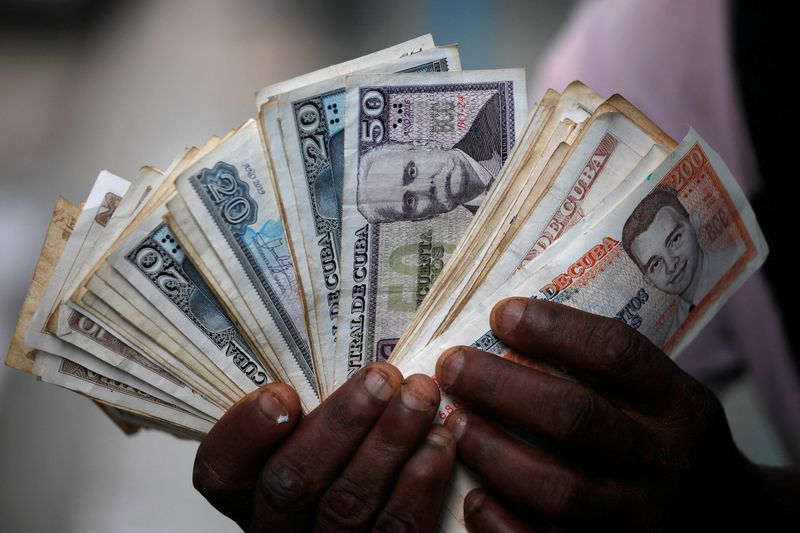
HAVANA (Reuters) – The Cuban government and independent online news site El Toque traded blows this week after state media accused the site of manipulating currency exchange rates on the black market to drive Cubans into poverty and foment unrest on the Caribbean island.
The website El Toque (eltoque.com) infuriated the administration of Cuban President Miguel Diaz-Canel by publishing a rate of Cuban pesos per dollar that was far higher than the two official levels set by his government.
Cuba’s state media this week intensified its long-standing criticism of El Toque, arguing that the currency tracking site – by far the most widely used on the island – constitutes “financial terrorism.”
“El Toque is secretly financed by the United States and is setting a false value of the peso against the dollar,” state media CubaDebate said in an article. “This strategy is aimed at inciting (large-scale) protests in Cuba.”
The US State Department did not immediately respond to a request for comment on the allegations.
The row over the currency tracker comes as the Cuban peso currency has lost nearly half its value against the dollar in 2024 alone, a devastating free fall that has slashed the purchasing power of Cubans, according to El Toque , already rocked by economic crisis, inflation and shortages.
Cubans covet increasingly valuable dollars as a safe haven from currency shocks, as well as for migration and buying food and fuel on an island increasingly dependent on the dollar.
El Toque defends its online exchange rate tracker, saying Cuba’s accusations, some of which state media say could lead to criminal charges, are “ridiculous and implausible.”
remove advertising
.
“The Communist Party has decided to scapegoat our platform, elToque, to justify its failure,” Miami-based El Toque editor-in-chief José Hasan Nieves said in a message emailed to readers.
El Toque says it calculates its exchange rate by using artificial intelligence to scan messages posted online in which buyers and sellers state their estimated buying or selling prices for various currencies.
Independent economists on and off the island say the rapid devaluation of the peso followed sharp declines in domestic output and exports, a widening budget deficit and strong demand for scarce dollars.
The Cuban government has promised for months to take decisive action to stop the collapse of the peso, but has yet to announce new measures.


